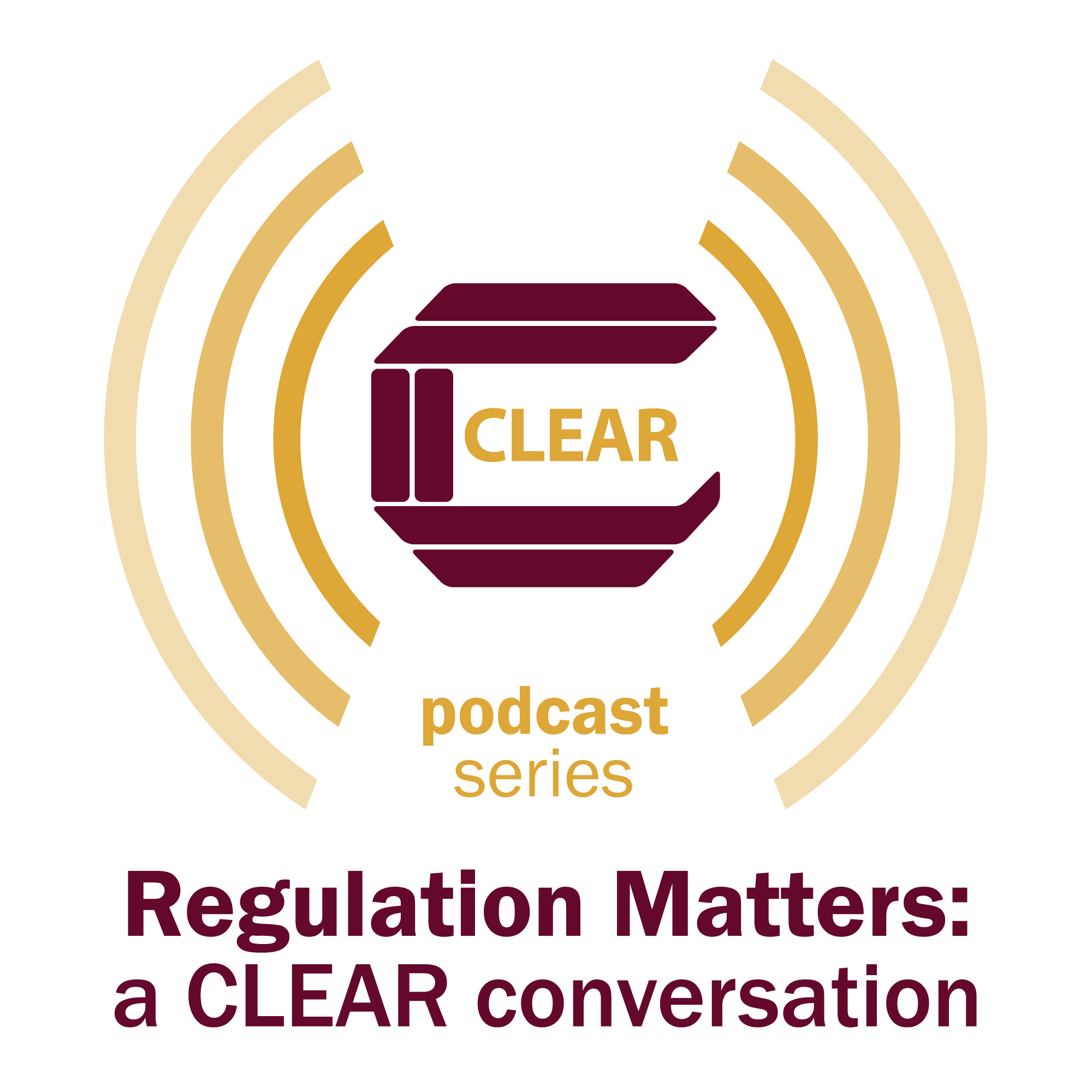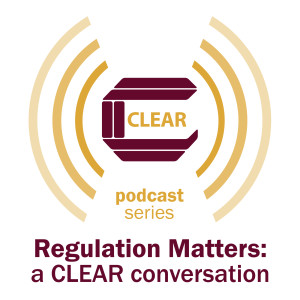
CLEAR’s podcast is a resource in the field of professional and occupational regulation to help stakeholders stay current on new developments and hear diverse opinions on a broad range of topics. 1) CLEAR is a place for novel, thoughtful, non-partisan debate, undertaken inclusively and respectfully. Those who contribute to the debate speak in their own capacity, and do not necessarily represent the view(s) of CLEAR. 2) CLEAR provides a space in which contentious issues can be safely and respectfully discussed, grounded in a sound body of professional regulatory knowledge. 3) Acting in the public interest, regulations, and the views of regulators and the wider public, evolve over time. Discussions at CLEAR reflect this evolution of thinking, encompassing a wide variety of considered opinion. Music clips: ”Someone Else” by Full Power Music, licensed through Adobe Stock
CLEAR’s podcast is a resource in the field of professional and occupational regulation to help stakeholders stay current on new developments and hear diverse opinions on a broad range of topics. 1) CLEAR is a place for novel, thoughtful, non-partisan debate, undertaken inclusively and respectfully. Those who contribute to the debate speak in their own capacity, and do not necessarily represent the view(s) of CLEAR. 2) CLEAR provides a space in which contentious issues can be safely and respectfully discussed, grounded in a sound body of professional regulatory knowledge. 3) Acting in the public interest, regulations, and the views of regulators and the wider public, evolve over time. Discussions at CLEAR reflect this evolution of thinking, encompassing a wide variety of considered opinion. Music clips: ”Someone Else” by Full Power Music, licensed through Adobe Stock
Episodes

Tuesday Jun 08, 2021
Tuesday Jun 08, 2021
Carla Caro with ACT and Rebecca Durcan with Steinecke Maciura LeBlanc explore how regulatory bodies consider and deal with criminal history or record among applicants for licensure. Carla shares results of an international survey about where regulatory bodies currently are regarding their consideration of criminal background in licensure decisions, showing a great deal of variation in what is considered, how far back they looked, and whether the criminal history was related to the license being sought. They discuss how regulatory organizations are taking a more nuanced look at good moral character requirements and whether they're placing too much weight on criminal history and considering how to balance public protection with providing fair opportunities for employment.
They suggest engaging your board, legal counsel, and staff in a proactive and systematic review of policies so that you can develop approaches that balance the public protection mandate with things that are relevant and proportionate to the level of risk and nature of the offense, creating decision processes that are less subject to implicit bias or impacts that may have resulted from systemic bias in the criminal justice system. Are the requirements meeting the intent, and, if not, how can we modify or eliminate them?
study that Rebecca refers to: “Rethinking the Character and Fitness Inquiry” by Leslie Levin of University of Connecticut School of Law (2014). https://opencommons.uconn.edu/law_papers/125/
Transcript: html (https://www.clearhq.org/page-1860709) or
PDF (http://clearweb.drivehq.com/podcast_transcripts/CLEAR_podcast_episode42_Criminal_History_Licensure_
060821_transcript.pdf)

No comments yet. Be the first to say something!